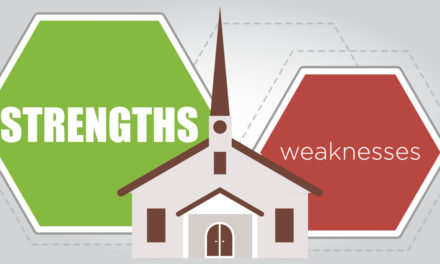Jesus answered and said unto them, Ye do err, not knowing the scriptures, nor the power of God. (Matthew 22:29)
In those days there was no king in Israel: every man did that which was right in his own eyes. (Judges 21:25)
And the LORD said unto Samuel, Hearken unto the voice of the people in all that they say unto thee: for they have not rejected thee, but they have rejected me, that I should not reign over them. (1 Samuel 8:7)
And ye have this day rejected your God, who himself saved you out of all your adversities and your tribulations; and ye have said unto him, Nay, but set a king over us. Now therefore present yourselves before the LORD by your tribes, and by your thousands. (1 Samuel 10:19)
“No king in Israel” is mentioned four times in the book of Judges. Interestingly, the phrase stands out in the book’s conclusion (21:25) even though Israel had been established as a theocracy with God as their king. What happened?
Israel had looked to the Lord as leader and king when they entered the promised land, and it remained that way throughout the days of Joshua and the elders of the people. However, a later generation would arise that knew neither the Lord nor His wonderful works (Judges 2:10). Again, what happened?
God had made provision for His people’s continued instruction in His words and ways. The many annual festivals were focused on the Lord. Every seventh year, the law was read at the feast of tabernacles (Deuteronomy 31:10-11). The Levites were spread out throughout the land, living in 48 designated cities and teaching Israel to “do according to all that the priests the Levites shall teach you: as I commanded them, so ye shall observe to do” (Deuteronomy 24:8).
Yet there was a breakdown in implementation. Proper instruction flagged, and among the recorded failures of the people, we see that some of the most bizarre acts were perpetrated by Levites. One of their number left a ministry to Judah, became the personal priest of an idolator in the hill country of Ephraim, and ultimately became the priest who led the entire tribe of Dan in idolatry (Judges 17-18). The thoughtless decisions of another endangered himself, led directly to the death of his wife, and caused the near total annihilation of the tribe of Benjamin (Judges 19-20). Yet these were Levites, the ones charged with knowing the law of God and faithfully teaching it among Israel.
The reason no king was recognized in Israel during the time of the judges was the nation knowing neither the Scriptures nor the power of God. Are we, today, on the brink of another biblically illiterate era among God’s people?
Sunday School is not a requirement explicitly spelled out in the Bible, but according to 2 Timothy 4:2, we ought to be teaching the Word of God to make people biblically literate. Historically, Sunday School was implemented for the instruction of both children and adults, but in recent years, such programs have decreased. It is important to note that we have not witnessed abandonment of dated practices in favor of modern, more effective teaching models. All we can report is a decline in Sunday Schools and wonder whether churches are concerned about filling this gap. Is there intentional instruction for all ages, delivered in a way that truly makes for biblically literate people?
The Lord’s Day is a time for the church to assemble around the Word of God (Acts 20:7; 1 Corinthians 15:2). While the number of classes or services to be conducted is nowhere specified, we do have a fascinating clue. Concerning God’s people in the end times, Hebrews 10:25 says, “Not forsaking the assembling of ourselves together, as the manner of some is; but exhorting one another: and so much the more, as ye see the day approaching.” Interesting. It does not say “and so much the less.” Assemble for exhortation so much the more. Again, the Bible does not say how often churches should meet. It does not demand Sunday School-style teaching. But the Bible clearly instructs God’s people to meet around the teaching of the Word of God. And as we get closer to the Lord’s return, this should increase.
How well are we doing? When a skewed worldview is taught five days a week in many schools and 24/7 via social media outlets, we absolutely need a regular, focused time for instructing our people (especially our young people) in the words and ways and power of our God. Are we accomplishing this? Do we systematically teach the whole council of God? Are we communicating truth intentionally and effectively? Are we reaching people in the anointing power of God?
Certainly, changes need to be made from time to time. Replacing flannelgraphs with digital media may be a solid (and long overdue) improvement. But changes scare me when they lessen a body’s knowledge of truth and extinguish experiencing the power of God.
The young people of Gen Z and Gen Alpha are being deceived by the enemy with lies producing feelings of worthlessness. These feed depression and suicidal thoughts, and even a quick look at statistics on such matters is heartbreaking. The young people in our churches, however, should not be counted in such stats for we have a great and mighty God. He is able to keep His children as they learn of Him and respond in faith. And this is more easily realized when they are intentionally instructed in the truth and power of God.
May it never be said of the church in our time that we forsook divine leadership and everyone did that which was right in our own eyes. Rather, may the preaching and teaching of the Word of God go forth thoroughly and in the power of the Holy Spirit. We need a biblically literate generation, one that is experiencing Jesus on a daily basis.

John Van Gelderen
Post Author












This is very good and so very true!! In our church we are witnessing the propagation of reformed theology, doubt and criticism of the AV Bible, dismantling of classes in favor of “small group” discussion tables with rotating teachers, and questionable curriculum in the Sunday School programs. The numbers are dropping; we know of many who have left and plan to leave. One might think there is a plan to “replace and replenish” with those who don’t read and apply the Word very earnestly, and who would just accept whatever came from the pulpit. This has all challenged us to… Read more »
Praying is a right response if you have concerns. Small groups can be done well. Obviously, content is important.
A hearty, Amen! That “so much the more” in Hebrews 10:25 is very important not to overlook!
Amen!
THE AVERAGE PERSON,CHRISTIAN,CHURCH MEMBER HAS NEVER LED ANYONE TO CHRIST, WENT TO SUNDAY NIGHT,MID WEEK PRAYER MEETING,MUCH LESS WENT TO REVIVAL.MOST PEOPLE SETTLE FOR A SECOND CLASS CHRISTIANITY,SPIRITUALITY,EDUCATION,LIFE’S COMPANION,ETC.MOVING FURTHER AWAY FROM ALMIGHTY GOD.THIS DOES NOT SURPRISE ME MUCH @ ALL,IF @ ALL.NO ONE WANTS TO BE TOLD WHAT TO DO OR HOW TO LIVE.SO WHAT DO YOU REALLY WANT OUT OF LIFE??IS GOD PLEASED WITH THE BRAND/QUALITY OF OUR LIVES?IN EVERY AREA?WILL OF GOD IS NEVER EASY,POPULAR OR CONVENIENT.IN MY NECK OF THE WOODS.HARRIS COUNTY;HOUSTON,TX.1 CHURCH-6 LOCATIONS IS 1 AND DONE SUNDAY MORNING ONLY.MATTER OF CHURCH ,MOST CHURCHES HAVE… Read more »
There has been a decline in services. So we must pray for an awakening and revival.